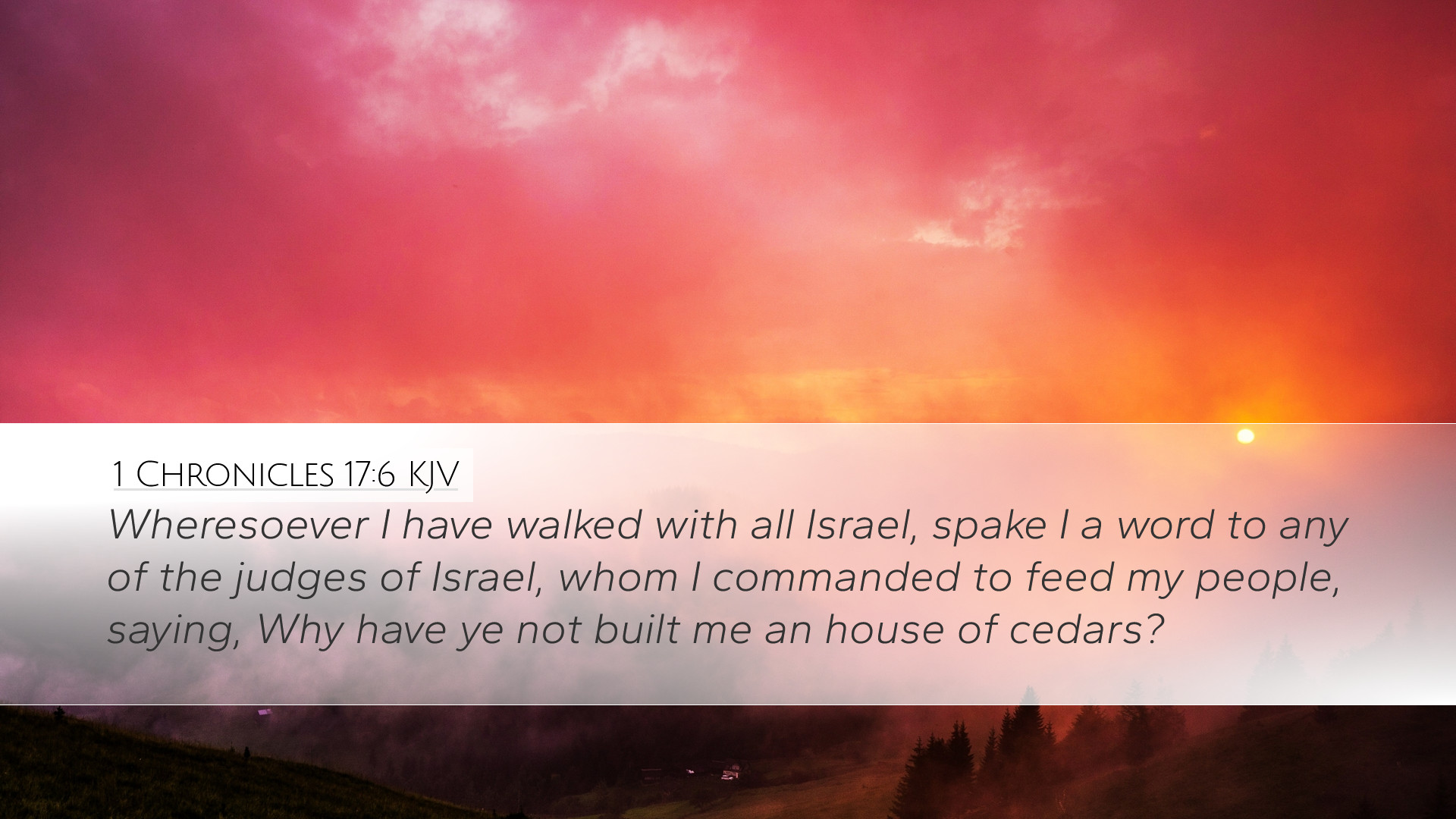Old Testament
Genesis Exodus Leviticus Numbers Deuteronomy Joshua Judges Ruth 1 Samuel 2 Samuel 1 Kings 2 Kings 1 Chronicles 2 Chronicles Ezra Nehemiah Esther Job Psalms Proverbs Ecclesiastes Song of Solomon Isaiah Jeremiah Lamentations Ezekiel Daniel Hosea Joel Amos Obadiah Jonah Micah Nahum Habakkuk Zephaniah Haggai Zechariah MalachiChapter
1 Chronicles 1 1 Chronicles 2 1 Chronicles 3 1 Chronicles 4 1 Chronicles 5 1 Chronicles 6 1 Chronicles 7 1 Chronicles 8 1 Chronicles 9 1 Chronicles 10 1 Chronicles 11 1 Chronicles 12 1 Chronicles 13 1 Chronicles 14 1 Chronicles 15 1 Chronicles 16 1 Chronicles 17 1 Chronicles 18 1 Chronicles 19 1 Chronicles 20 1 Chronicles 21 1 Chronicles 22 1 Chronicles 23 1 Chronicles 24 1 Chronicles 25 1 Chronicles 26 1 Chronicles 27 1 Chronicles 28 1 Chronicles 29Verse
1 Chronicles 17:1 1 Chronicles 17:2 1 Chronicles 17:3 1 Chronicles 17:4 1 Chronicles 17:5 1 Chronicles 17:6 1 Chronicles 17:7 1 Chronicles 17:8 1 Chronicles 17:9 1 Chronicles 17:10 1 Chronicles 17:11 1 Chronicles 17:12 1 Chronicles 17:13 1 Chronicles 17:14 1 Chronicles 17:15 1 Chronicles 17:16 1 Chronicles 17:17 1 Chronicles 17:18 1 Chronicles 17:19 1 Chronicles 17:20 1 Chronicles 17:21 1 Chronicles 17:22 1 Chronicles 17:23 1 Chronicles 17:24 1 Chronicles 17:25 1 Chronicles 17:26 1 Chronicles 17:27

